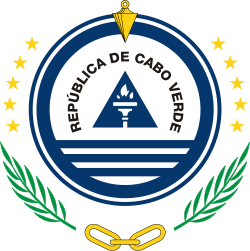7 December 1980 | |||||||||||||||||||||||||
| Registered | 126,028 | ||||||||||||||||||||||||
|---|---|---|---|---|---|---|---|---|---|---|---|---|---|---|---|---|---|---|---|---|---|---|---|---|---|
| Turnout | 75.77% | ||||||||||||||||||||||||
| |||||||||||||||||||||||||
 Results by constituency | |||||||||||||||||||||||||
| |||||||||||||||||||||||||
 |
|---|
Parliamentary elections were held in Cape Verde on 7 December 1980. [1] The country was a one-party state at the time, with the African Party for the Independence of Guinea and Cape Verde (PAIGC) as the sole legal party. [2] Its leader was Aristides Pereira. The PAIGC presented a list of 63 candidates and three substitutes to voters to approve.
